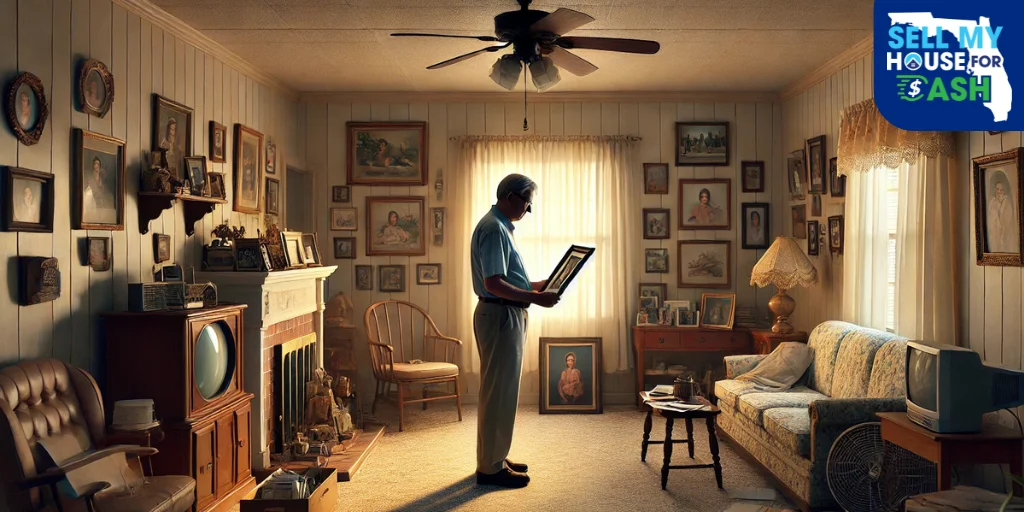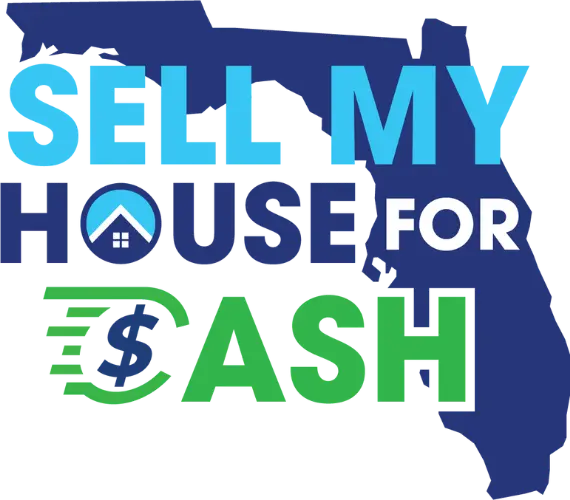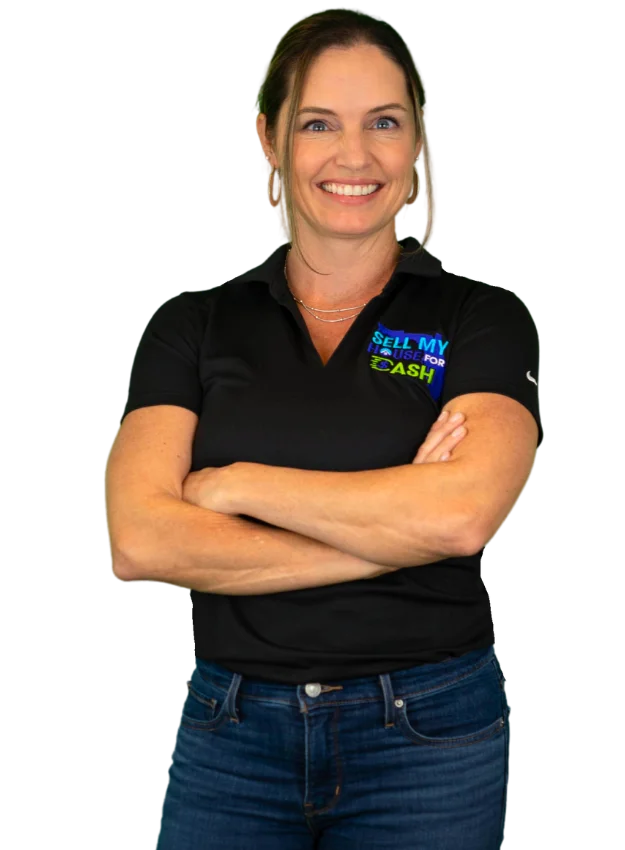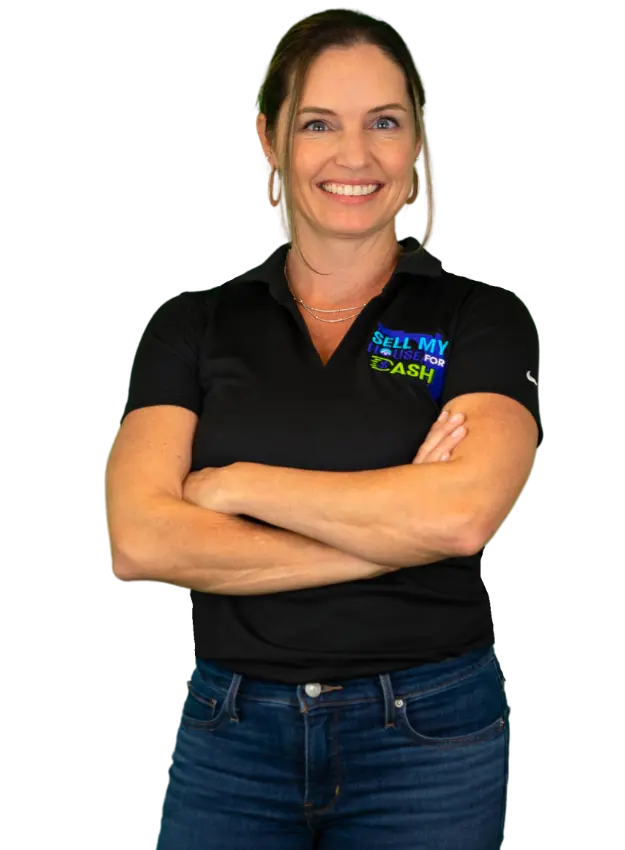What Is Probate—And
Why It Affects the House
If you're dealing with a house after a loved one has passed, you've probably heard the word "probate" thrown around—but what does it actually mean?
Probate is the legal process the state of Florida uses to verify a will (if there is one), settle debts, and distribute assets—including property like a house. Until the court gives the green light, no one—not even the heirs—can legally sell the home.

That means even if you’ve inherited the house, you might not be able to sell it yet.
In most cases, the court appoints a personal representative (sometimes called an executor) to manage the estate. If you’ve been named as that representative, you may be allowed to sell the house during probate—but only if you follow the legal steps.
If no one has been appointed yet, or if the estate is still tied up in the early stages of probate, selling the home could cause legal problems—even if everyone agrees.
Unsure what this means for your situation? Learn more about selling an inherited house in Florida.
If all of this feels overwhelming, you’re not alone. At Sell My House For Cash Florida we talk to Florida homeowners every week who are in the same position—staring at a house filled with memories, unsure what to do next. This page will help you understand what’s possible, what’s not, and how to move forward with clarity.
Yes, You Can Sell During Probate
But Only If You Follow These Rules
Yes—you can sell a house while it’s in probate in Florida, but only under certain conditions.
If you’ve been officially named the personal representative (also known as the executor), and the will or court doesn’t restrict the sale, you may have the authority to list or sell the home before probate is complete. But the process must follow court-approved steps, and in many cases, the sale must be authorized or reported to the court.
Here’s what that typically looks like:
- The house is included in the estate's inventory
- All interested parties (heirs, beneficiaries) are notified
- The sale reflects fair market value or is justified
- Proceeds go into the estate—not to any individual directly—until probate closes
If you’re not the personal representative, or if there’s disagreement among heirs, you likely can’t sell the house until probate moves further along—or the court grants permission.
Not sure where you stand? Contact us and we’ll help walk through your situation at no cost.
Many Florida sellers choose to get a cash offer early in the process, then complete the sale once probate allows it. We regularly work on probate timelines and can hold an offer or structure a flexible closing that aligns with court requirements.
Learn more about our simple process here → How We Buy Houses
Who Can Legally Sell the Property?
Not just anyone can sell a house in probate—even if you’re a family member or named in the will. In Florida, only the court-appointed personal representative (also called the executor or administrator) has the legal authority to sell the home on behalf of the estate.
If you’re the personal representative, your role includes:
- Managing estate assets
- Paying off debts
- Distributing proceeds to heirs
- And in many cases, handling the sale of the house
But this doesn’t mean you can do whatever you want. You may still need:
- A court order to approve the sale
- An appraisal to show fair market value
- Signed consent from other heirs, depending on the situation
If no one has been appointed yet, or the title is unclear, you’ll need to wait for the court to officially name a representative before moving forward.
Want to understand the full timeline and process? Next, we’ll break down how a sale works during probate—step by step.
How the Sale Works During Probate
Selling a house in probate is different from a typical sale—but that doesn’t mean it has to be complicated. Here's a simplified version of how it usually works in Florida:
📜 1. Include the Property in the Estate Inventory
The personal representative lists all assets—this includes the house. The court uses this inventory to assess value, debts, and next steps.
🧑⚖️ 2. Request Approval (If Needed)
In some cases, you’ll need the court’s permission to sell—especially if it’s early in the probate process or if the sale affects how the estate will be divided.
📢 3. Notify Heirs and Interested Parties
All heirs and beneficiaries must be made aware of the intended sale. If no one objects, the process typically moves forward without delay.
📅 4. Accept a Fair Offer
The court expects the home to sell for fair market value. A cash offer is often acceptable—especially if the home is in poor condition—but the price must be justifiable.
🌟 5. Complete the Sale and Distribute Funds
Once the home closes, the funds go into the estate account—not directly to heirs. The court then ensures debts are paid before distributing what’s left.
Can You Sell the House As-Is?
Yes—you absolutely can sell a house in probate as-is, without making any repairs or clearing everything out.
Many inherited homes haven’t been updated in years. They’re full of furniture, paperwork, and personal belongings. The idea of cleaning, staging, or renovating before a sale feels overwhelming—and unnecessary.
What selling as-is means:
- You don’t need to fix anything
- You don’t have to remove furniture, boxes, or clutter
- You won’t need to pay for cleaning, staging, or photography
- You can sell the home in its current condition, even if it hasn’t been touched in years
You can sell the home in its current condition, even if it hasn’t been touched in years
We’ve bought probate houses with:
- Water damage, roof leaks, or structural issues
- Full garages, cluttered bedrooms, or overgrown yards
- Personal items left behind—photos, clothing, furniture
And we handled everything.
See how simple it can be → Selling a House As-Is in Florida
What Happens to the Money After the Sale?
One of the biggest misunderstandings about probate is what happens once the house is sold. Here’s the truth:
The money doesn’t go directly to you—or to any individual heir—right away.
Instead, the proceeds from the sale go into the estate account, where they’re held and managed by the personal representative. From there, the court uses those funds to:
- Pay off any outstanding debts
- Handle taxes or legal fees
- Distribute the remaining balance to the rightful heirs, as outlined in the will (or by Florida law if there’s no will)
If the property had a mortgage, lien, or unpaid taxes, those will usually be paid off at closing. Whatever remains goes into the estate and is distributed after the court signs off on everything.
Want to see what a real cash offer could look like—without pressure? Get your offer here
5 Common Mistakes to Avoid When Selling a House in Probate
Probate sales come with a unique set of challenges—and we’ve seen Florida homeowners make the same avoidable mistakes over and over again. Here’s what to watch out for:
❌ 1. Selling Too Early Without Legal Authority
Just because you’ve inherited the house doesn’t mean you can sell it yet. Only the personal representative has the legal right to sell—and even they may need court approval.
Not sure where you stand in the process? Check out our guide to Selling an Inherited House in Florida
❌ 2. Fighting With Family Over the Sale
If there are multiple heirs, disagreements can stall or ruin a sale. Be transparent early, and work with a buyer who can help manage communication—not escalate tension.
Sell My House For Cash Florida have helped families find win-win solutions—Contact us if you need a neutral third party.
❌ 3. Spending Money on Repairs That Aren’t Needed
You don’t have to pour thousands into updates or renovations to make the house “market-ready.” Many buyers—like us—purchase as-is, no cleaning or upgrades required.
See what’s really worth fixing → What to Fix Before Selling a House
❌ 4. Letting the Property Sit Too Long
While probate does take time, holding onto the home too long can cost you. Monthly expenses like insurance, property taxes, lawn care, and HOA fees add up fast.
But beyond financial drain, there’s a hidden cost to letting a home sit vacant—Florida humidity. When the air conditioner isn’t running consistently, indoor humidity levels rise. This creates ideal conditions for unwanted pests like palmetto bugs, silverfish, springtails, and firebrats. Even worse, high humidity increases the risk of mold growth, which can quickly damage drywall, flooring, and personal items.
The University of Florida recommends keeping your AC set no higher than 84°F to prevent humidity levels from exceeding 55–60%—a threshold where mold and bacteria can begin to grow.
❌ 5. Choosing the Wrong Buyer
Not all buyers understand probate—or act in good faith. Some may tie up your property for weeks, then renegotiate or back out.
Why Probate Sellers Trust Us
Selling a house in probate isn’t just a legal transaction—it’s emotional, time-sensitive, and filled with uncertainty. That’s why Florida families turn to Sell My House For Cash Florida when they’re looking for a buyer who understands more than just property value.
✅ Local, Family-Run Team
We’re not a call center or a faceless national franchise. We’re a husband-and-wife team based right here in Florida. We’ve helped people in your exact situation—and we treat every family with patience and respect.
Learn more about us → About Our Team
✅ You Don’t Have to Clean or Fix a Thing
Inherited homes often come with decades of belongings, damage, or deferred maintenance. That’s fine with us. We buy homes exactly as they are.
See how simple it can be → Selling a House As-Is in Florida
✅ We Show the Numbers
Our offers are transparent. We walk you through the math—ARV, repair costs, selling expenses, and profit margin—so you understand exactly how we arrived at your number.
Want to see a sample breakdown? → How We Buy Houses
✅ We Handle the Heavy Lifting
From working with your probate attorney to coordinating with the title company, we make the process smooth. You’ll never feel rushed—and you’ll never feel alone.
Have questions? Contact us anytime—we’re here to help.
Need Help with More Than Just Probate?
Handling a loved one’s estate can feel overwhelming — and probate is only part of the process. If you're navigating property issues, family dynamics, or financial questions along the way, these guides can help you make sense of the next steps and move forward with clarity.
Want to avoid drawn-out sales? Here’s how to sell the probate house fast in Florida.
Looking to keep more of the estate proceeds? Learn how to sell a house without a realtor in Florida.
Concerned about your bottom line? Here’s how much you might lose—or save—selling as-is.
Want to sell the probate property quickly? Weigh the pros and cons of taking a cash offer.
Divorcing and dealing with probate? Here’s how to sell a house during divorce in Florida.
Handling probate from another city or state? See how relocation impacts your options.
If the inherited property has fire damage, here’s what to know about selling a house after a fire in Florida.
If the inherited home has water damage or signs of neglect, here’s what to know about selling it as-is.
Did the property fall into disrepair? Learn how to sell a house with code violations during probate.
If the home you inherited is outdated or damaged, see your options for selling a house in poor condition.
Do I pay taxes when selling the estate property? Here's what to know about capital gains tax in Florida.
Sharing the inheritance with siblings or relatives? Here's how to sell a house with multiple owners.

Alain Perez-Majul
Juan and Castilia are awesome! We were dealing with my parent's property here in Florida, and they went above and beyond when buying it from us. The process was quick and easy, we didn't have to do a thing to the house, and we closed within a couple of weeks. Thanks, guys!
Probate Doesn’t Have to Be Complicated
No Matter Where You Are in Florida
Whether the property is in Miami, Orlando, Tampa, or a quiet neighborhood in Tallahassee or West Palm Beach, probate can feel like a maze.
Sell My House For Cash Florida helps homeowners across the state sell houses during probate without stress, delays, or legal confusion. From Jacksonville to Fort Lauderdale, we know Florida’s probate process—and we know how to work within it to help you move forward.
No cleaning. No repairs. No confusion. Just honest help and a clear path forward.
Ready to talk about your probate property?
👉 Learn more about us and how we help Florida sellers.
Fill out the form below and we’ll walk you through your options—without pressure, without obligation.


